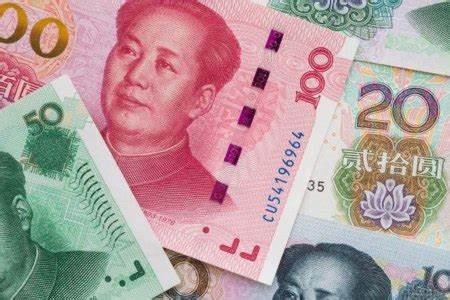The exchange rate between the British Pound Sterling (GBP) and the Thai Baht (THB) in 2025 was influenced by a complex interplay of economic, political, and global factors. This article explores the key drivers of GBP/THB fluctuations, its impact on various sectors, and the potential future trajectories of this currency pair.
Historical Context
The GBP/THB exchange rate has a history shaped by diverse factors, including:
Economic Growth Differentials: Relative economic growth between the UK and Thailand significantly influences the exchange rate. Stronger UK growth typically strengthens the pound, while robust Thai economic growth can support the baht.
Tourism: Thailand is a major tourist destination for British citizens. Increased British tourist arrivals to Thailand can boost demand for the baht, while economic downturns in either country can impact tourism flows and currency exchange rates.
Global Economic Conditions: Global economic events, such as the 2008 financial crisis and the COVID-19 pandemic, have had a significant impact on both the UK and Thai economies, influencing the GBP/THB exchange rate.
Monetary Policy: Monetary policy decisions by the Bank of England and the Bank of Thailand play a crucial role in influencing interest rates and, consequently, currency values.
Key Drivers of GBP/THB in 2025
Several key factors contributed to the GBP/THB exchange rate dynamics in 2025:
UK Economic Growth and Brexit: The UK economy faced challenges in 2025, including the ongoing impact of Brexit, which impacted investor confidence and potentially weakened the pound.
Thai Economic Growth and Tourism: The Thai economy, heavily reliant on tourism, was significantly impacted by the COVID-19 pandemic. The recovery of the tourism sector played a crucial role in influencing the baht’s strength.
Global Economic Uncertainty: Global economic uncertainties, such as the war in Ukraine and the risk of global recession, created volatility in global financial markets and impacted investor sentiment towards both the pound and the baht.
Monetary Policy Differentials: Monetary policy decisions by the Bank of England and the Bank of Thailand, including interest rate adjustments, influenced the relative attractiveness of the two currencies to investors.
GBP/THB Exchange Rate Trends in 2025
The GBP/THB exchange rate likely exhibited some volatility throughout 2025, reflecting the interplay of these factors.
Periods of Pound Strength: The pound could have strengthened against the baht during periods of robust UK economic growth, when global risk appetite improved, and when the Thai economy faced challenges.
Periods of Baht Strength: The baht could have strengthened against the pound during periods of strong Thai tourism recovery, when the Thai economy outpaced UK economic growth, and when global risk aversion increased.
Impact of GBP/THB Exchange Rate Fluctuations
Fluctuations in the GBP/THB exchange rate had significant implications for various sectors:
Tourism: A weaker pound can make travel to Thailand more affordable for British tourists, boosting tourism revenue for Thailand. Conversely, a stronger pound can discourage British tourists from visiting Thailand.
Trade: The exchange rate impacts the competitiveness of exports and imports between the UK and Thailand.
Investment: Exchange rate fluctuations can influence investment decisions in both countries.
Consumer Prices: A weaker pound can increase the cost of imported goods from Thailand in the UK, potentially contributing to inflation.
Government and Central Bank Policies
The Bank of England and the Bank of Thailand played crucial roles in influencing the GBP/THB exchange rate through their monetary policy decisions.
Monetary Policy: Interest rate adjustments and other monetary policy tools can significantly impact the relative attractiveness of the pound and the baht to investors.
Foreign Exchange Interventions: While infrequent, central banks can intervene in the foreign exchange markets to smooth out excessive volatility.
Role of Tourism in GBP/THB
Seasonal Fluctuations: The GBP/THB exchange rate could exhibit seasonal fluctuations, influenced by the flow of British tourists to Thailand.
Impact of Travel Advisories: Travel advisories and warnings issued by the UK government regarding travel to Thailand could significantly impact tourist flows and, consequently, the GBP/THB exchange rate.
Looking Ahead: Challenges and Opportunities
The outlook for the GBP/THB exchange rate remains uncertain, with several key challenges and opportunities:
UK Economic Growth: The long-term economic impact of Brexit and the UK’s ability to navigate the post-Brexit landscape will be crucial determinants of the pound’s strength.
Thai Tourism Recovery: The continued recovery of the Thai tourism sector will be a key driver of the baht’s performance.
Global Economic Conditions: Global economic growth, geopolitical risks, and commodity price fluctuations will continue to influence the exchange rate.
Monetary Policy Differentials: The divergence in monetary policy between the Bank of England and the Bank of Thailand will continue to play a significant role in influencing the GBP/THB exchange rate.
Final Thoughts
The GBP/THB exchange rate in 2025 was likely influenced by a complex interplay of economic, political, and global factors. The exchange rate had a significant impact on tourism, trade, and investment between the UK and Thailand. Looking ahead, the exchange rate outlook remains uncertain, with the performance of both the UK and Thai economies, as well as global economic conditions, playing crucial roles in determining its future trajectory.
FAQs
How did the COVID-19 pandemic specifically impact the GBP/THB exchange rate?
The COVID-19 pandemic significantly impacted the GBP/THB exchange rate. The sharp decline in international travel due to lockdowns and travel restrictions severely impacted Thailand’s tourism sector, a key driver of the Thai economy. This decline in tourism revenue negatively impacted the baht. Furthermore, the global economic slowdown caused by the pandemic created uncertainty and volatility in global financial markets, impacting both currencies. Finally, the accommodative monetary policies implemented by both the Bank of England and the Bank of Thailand to support their respective economies during the pandemic could have influenced the exchange rate.
What role did political stability and geopolitical events play in influencing the GBP/THB exchange rate?
Political stability and geopolitical events played a significant role in influencing the GBP/THB exchange rate. Political instability and uncertainty surrounding the UK government, including Brexit-related challenges, could have negatively impacted investor confidence in the pound. Geopolitical events, such as the war in Ukraine, created global economic uncertainty and increased risk aversion among investors, potentially impacting both the pound and the baht.
What are the potential long-term implications of the GBP/THB exchange rate for the environment and social well-being?
The GBP/THB exchange rate can have significant long-term implications for the environment and social well-being.
Environmental Impact: Tourism growth, influenced by the exchange rate, can have significant environmental impacts. A weaker pound, potentially leading to increased tourism, could exacerbate environmental challenges such as over tourism and pollution.
Social Impacts: The exchange rate can impact the livelihoods of people working in the tourism sector in Thailand. A weaker baht could lead to increased tourism, potentially creating both economic opportunities and social challenges for local communities, such as overcrowding and pressure on local resources.
To read more, Click Here




Leave a Reply